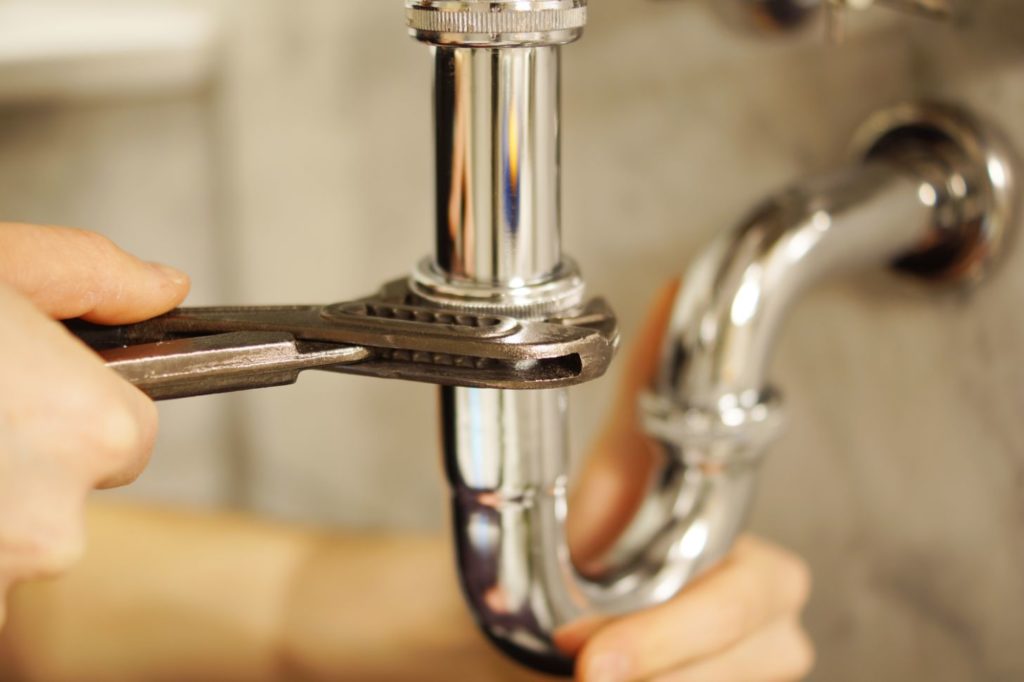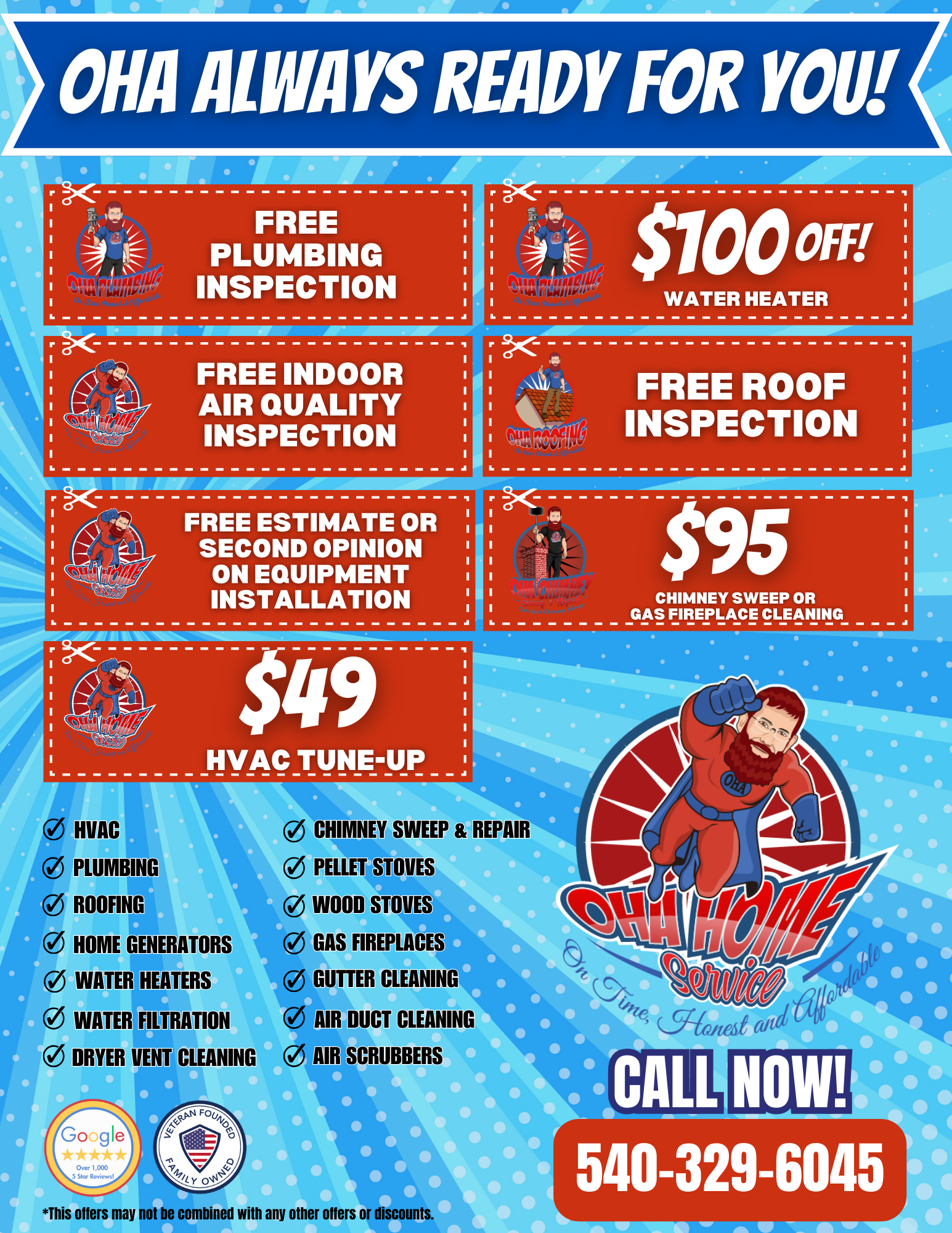Almost anything is fixable.
We say ‘almost anything’ because plumbing emergencies require effort, patience, and expertise.
But that’s not all.
Plumbing emergencies also require immediate attention because if they are not repaired timely and effectively, these emergencies can have a devastating impact, including electrocution, structural property damage, and expensive repairs down the line.
Therefore, it is crucial to know about the most common plumbing emergencies that arise so you can be prepared beforehand. This knowledge will help you to take fast and decisive action.
So, without any further ado, let’s get right to the ten most common plumbing emergencies you should be mindful of.
1. Leaky Faucet
Many people don’t realize the damage a leaky faucet can do.
It might sound like an exaggeration, but dripping faucets are a silent destroyer. They can go unnoticed and can potentially bring an entire house down.
When a faucet leaks; every second translates to at least 86,400 water drops each day, leading to 8 tons of water each year. Yes, that’s right! And we are only talking about a single faucet right now.
As you increase the taps you have in your home, you increase water wastage proportionately.
Wasting water is one thing, but the exorbitant bills you’d have to pay because of a leaky faucet will leave you high and dry – quite literally!
While one solution could be getting a slow-drip faucet, it still does not solve the root issue because the tap will continue to leak.
To make matters worse, water wastage is only one-half of the problem. The other half is the rust, mold, and structural damage that water leakage can do.
Metal and water rarely make a good match. So, when moisture gets accumulated because of a leak, it leads to a rust buildup in the pipes and the faucet. This weakens the structures to an extent where even the most minor knock could break the sink or the drain.
Additionally, if there are any wooden structures around the faucet, there would be a higher chance for rot to grow, leading to a potential outbreak of mold that brings a variety of health hazards.
Therefore, a dripping faucet is the most common and potentially bothersome plumbing emergency – even if a regular homeowner does not recognize it as one.
Leaky Toilet
As you stay vigilant, there is another leak you must be mindful of: a leak from a toilet or a bidet since a dripping faucet is not the only place where a leakage emergency can occur.
Often a toilet or a bidet can be equally – in fact significantly more – damaging than a small faucet. So, do look out for it.
Worn Out Stopper
A stopper, also known as a toilet flapper, is made of rubber that prevents the water from rushing into the bowl below.
Over time, the stopper, like most things in a toilet, wears out. A worn-out stopper becomes inefficient at stopping water, causing the toilet to flush continuously, which wastes gallons of water daily.
In addition to wasting water, continuous flushing causes the internal valves to become weak and susceptible to breaking.
Thus, replacing a part as tiny as a toilet flapper could help you avoid major plumbing emergencies.

2. Clogged Toilet
Nothing calls for emergency alarms more than a clogged toilet, and why wouldn’t it?
Clogged toilets overflow with water, bringing a pungent smell, and waste that a person can’t simply shake off.
Worst of all, a clogged toilet can be a symptom of a much larger issue, such as septic system damage. But not everything has to go wrong, regardless of how much it goes against Murphy’s law.
A clogged toilet can often be fixed with a few minutes of plumbing. Yet there is only so much strength in our arms and expertise in using a manual plunger. Thus, if a plunger does not fix the issue, it might be time to consult a professional plumbing service.
Here’s another thing you can do where you would neither require plumbing nor a professional company. You can simply follow plumbers’ maxims: ‘No.1, No.2, and toilet paper only’. Other things, from toothpicks to wet wipes and food, can lead to clogs in the pipes.
Clogged Sink Drain
A clogged sink drain is like a clogged toilet, requiring urgent repair before blowing up as a plumbing emergency.
Using a plunger or a drain snake are two DIY methods to address partial clogs.
But if you believe the situation is not minor and could lead to an impending plumbing emergency, it must be time to give a plumbing company a call.
3. Water Heater Emergencies
Like many luxuries in our home, we take the water heating system for granted until it stops working.
We are sure nobody loves waking up to a broken water heater because that would be a rude awakening!
You cannot wash or shower if the water heater stops functioning. And when you can’t shower, you are bound to be late or even miss your classes, dates, or a day’s work.
Hence, it is essential to look out for potential water heater related plumbing emergencies as well as prevent them from occurring.
Some standard water heating and plumbing emergencies include:
- Wear and tear or damage in the valves leading to water leakage or flooding in the house or the yard
Valves often wear out before the water heating system itself. Damaged valves lead to leaks and pipe bursts. As a result, it becomes crucial to replace the valves after the water heating system has been used for a few years.
- The buildup of rust and corrosion affects the efficiency of the heater and its water flow.
Rust and corrosion have a devastating impact on anything they touch; they wither the structures, reduce the surface area available for effective heating, and erode the efficiency of the heater which increases electricity usage.
Moreover, rust becomes a breeding ground for various diseases; it is common to witness mold outbreaks or thriving bacteria that make the water look bad and smell terribly putrid.
Hard Water’s Effects on Water Heater
Here’s a paradox that boggles the best of minds (and hands) even in the plumbing industry.
How can water be a culprit for plumbing emergencies? After all, the entire plumbing system was created to use water for several purposes. It just doesn’t add up!
Let us explain why water could cause a water heater related plumbing emergency.
Hard water is water with dissolved minerals mainly calcium and magnesium. It leaves behind a film of residue, which is detrimental to many structures.
If an area gets hard water or water that has dissolved minerals in it, it is likely to weaken the plumbing structure and even the slightest issue can immediately become an emergency.
In a lot of plumbing emergencies, people report that their water heater is either not heating the water or heating too little water. And when the water heating system is investigated, hard water is to be blamed because it leaves behind residues.
Ultimately, if a water heater has been used for more than five years it becomes vulnerable to the slightest weather change, water effects, and knocking. In such a situation, it is advised that you replace a water heater instead of getting repairs repeatedly.
4. Damaged Pipes
Pipes are never laid in a single, straight line. It requires a bunch of different pipes that are combined and welded together to form an uninterrupted supply line.
Joining pipes makes them stronger yet not strong enough to resist heavy damage. Something as common as dropping a hammer or heavy item could damage a pipe or a pipe joint. The damage might not be visible or even worthy of another look, but water only needs a small space to make its unanticipated entry.
Consequently, any damage to pipes’ joints or breaking can quickly become a cause for emergency.
5. Low Water Pressure
There is no bigger nightmare than running late and, as you twist the knob, finding the water pressure depressingly low.
Beyond bathing, low water pressure can slow down other tasks, including washing the dishes or watering the lawn.
And if we take a step back from how low water pressure affects our day-to-day life, we must consider how low water pressure is a plumbing emergency.
Low water pressure is an emergency that can be caused by one of the following:
- Getting low water pressure from utility
If you are getting low water pressure from your utility service, you can resolve it by contacting the concerned authorities. In other situations, however, low water pressure from utility services’ main line could mean there is a disaster waiting to unfold.
The emergency in making could be because of a nearby construction or unregulated digging that damages the supply lines resulting in lower water pressure reaching the residents.
- Using multiple sources of water at various places at once
Most houses get enough water and water pressure in the USA, so using multiple taps at once would not necessarily reduce the water pressure.
Yet if using multiple water sources simultaneously reduces the flow of water, it could mean there is an underlying issue or one of the delivery lines supplying water to your territory requires an inspection.
- Presence of blocked pipes
If the issue is not in the central utility or delivery line, the problem can be diagnosed in the blocked pipes under the tiles.
This requires minimal digging and clearing of clogged pipes to ensure fast water flow.
Worst of all, a blocked pipe could be an indicator that there is a blockage that can lead to a pipe burst.
6. Water Line Break
There are two possibilities of a line break, and both call for immediate emergency service.
First, the main utility line could break, disrupting the water supply to multiple areas. Second, the delivery line that delivers water from the public system to your home could break.
It is not yours to fix if the public utility line is broken. Homeowners can simply contact the Municipal office, inform them about the disruption, and wait for it to get repaired.
On the other hand, you must be responsible for the repairs if the delivery line breaks.
Fixing a water line break is neither as convenient nor cheap as replacing a broken pipe.
7. Sewer Line Emergencies
Any issue that involves the sewer line is always a plumbing emergency.
So, let’s understand what sewer lines are and what could cause a plumbing disaster.
Water lines bring water to you while sewer lines take it back. In rare plumbing emergencies, which are becoming all too common now, sewer lines malfunction leading to explosions that would not blow up your house (we hope) but cause a stink that stays for weeks and even months.
One of the leading causes of sewer line issues stems from clay pipes. Some older homes have clay pipes.
While clay pipes were great when they were available, they have done their time. They were suitable for previous generations; they create issues for modern homes. Hence, replacing outdated clay pipes with cast iron pipes is one solution to fix a sewer line emergency This will require contacting a professional company.
There’s another thing you can do (or perhaps not do). Don’t flush flushable wipes and pods. No matter what the packaging says, flushable wipes are not actually flushable and cause incalculable damage to sewage systems.
Lastly, if sewer lines show any signs of choking, they must be addressed quickly before things take a turn for the worse.
8. Downspout Emergencies
Downspouts collect rainwater and drain them so excess water does not cause any roof damage.
There are two ways in which downspouts can cause plumbing emergencies.
First, any leakages in the downspout can cause rainwater to seep into the roof and cause the roof to leak, ruining the house’s interior.
Second, if there is not a well-structured drain to collect rainwater, it can cause excessive water to seep into the basement that results in flooding.
9. Wet Spots on The Lawn
A few wet spots that you may find in your lawn are not an issue. They are a source of water for many birds around, and if you look at the puddle from the right angle, you’d be lucky to spot a rainbow. However, not all puddles are friendly; some puddles have a dark side to them and an emergency lurking around the corner…
Damp patches signify that there is an issue with the septic system. Typically, wet spots indicate that the septic system, sewer mains, or some leaking water issue is present.
An easy way to get rid of wet spots is to get some dirt and new sod and clear the puddles without professional help.
But if the issue persists and becomes potentially dangerous to the residents or the house structure, a professional company must be contacted without delay since a puddle only forms when there has been significant water damage below the surface.
10. Overflowing Gutters
While we have discussed how overflow can be an issue, there is often another culprit to be suspect of – heavy downpour.
After only a few spells of rain, gutters can overflow. Once the rain stops, water freezes in colder temperatures, ruining the roof, and the downspout would require costly roof repair if there isn’t a well-maintained drainage and plumbing system.
As soon as the forecasts suggest heavy rainfall, one must clear all gutter areas to ensure water moves out quickly. Moreover, any debris that might hinder water movement into the drainage system must also be removed.
Once the gutter has been cleared of all fallen leaves and debris, you can place a wire mesh to prevent any more twigs from clogging the drain.
In other instances, an overflowing gutter can be caused when the gutter is not aligned correctly, resulting in a gradient problem.
Water Stains in The Basement
Water stains, like puddles, are a plumbing emergency.
After all, they are a visual reminder that pipes or structures below the surface are not as solid and intact as they must be.
Whether the water stains are on the roof, walls, or on the ground, they all indicate plumbing troubles underneath the surface.
Solutions To All Your Plumbing Emergencies in Stafford, Fredericksburg & Spotsylvania, VA
While we wish no one has to face a plumbing emergency, we live in world where plumbing emergencies are quite frequent and smelly.
If a plumbing emergency does occur, contact professional plumbers who can put a stopper on all your plumbing emergencies and flush away your stress.
In case you are looking for a professional plumbing company in Stafford, Fredericksburg, and Spotsylvania, VA, look no further than OHA Plumbing.
We can solve all your plumbing problems timely, effectively, and economically. Isn’t that just what you want?












